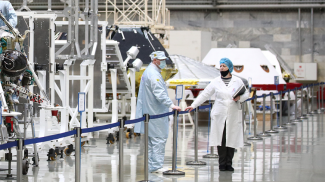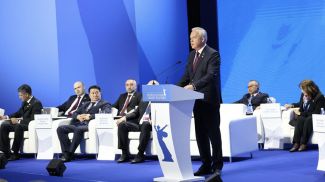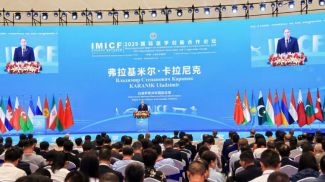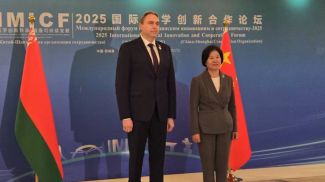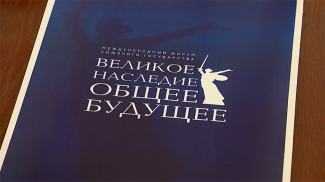MINSK, 28 May (BelTA) – Minsk is interested in expanding cooperation with Beijing in various areas, Minsk Mayor Andrei Shorets said at the meeting with a Chinese delegation at the Minsk City Hall on 26 May, BelTA has learned.
Bilateral tourism is one of the promising areas. “Minsk can become a starting point for traveling not only around Belarus, but also to other countries. Using the visa-free rules, Chinese tourists can visit Moscow, St. Petersburg, Kiev, Warsaw, Vilnius or Riga,” the mayor said.
Interaction in sport, culture, rental housing construction, and the IT sector looks also quite promising. “We are open to cooperation and are interested in implementing concrete mutually beneficial projects,” Andrei Shorets said.
Beijing Vice Mayor Zhang Gong noted that he visited Minsk eight years ago and the Belarusian capital made a pleasant impression on him. “It is a beautiful green city. The capitals of Belarus and China need to further develop friendly relations, strengthen cultural ties. Minsk has a good geographical location. It is necessary to tap into this resource within the framework of the Belt and Road initiative, he believes.
Zhang Gong thanked the Minsk City Hall for the support of the projects to build The Beijing Hotel and the Lebyazhy residential complex and expressed hope for new investment projects in the future. He invited Andrei Shorets to visit Beijing.
The head of the Beijing delegation supported the initiative on cooperation in the sports sector, in particular the training of children's winter sports teams. “These areas of our cooperation are underdeveloped. Minsk's experience would be useful. In addition, we are ready to host performances of your artistic groups,” Zhang Gong said.
The guests were taken on a guided tour around the city hall. The parties signed an agreement on cooperation in tourism and culture, exchanged gifts.
Relations between Minsk and Beijing began to develop in 1997. On 26 April 2016 the parties signed a twinning agreement during the visit of a delegation of the Minsk city authorities. Back then the parties outlined the main avenues of cooperation: building up the supply of confectionery products, assistance in the development of the smart transport control system, etc.




